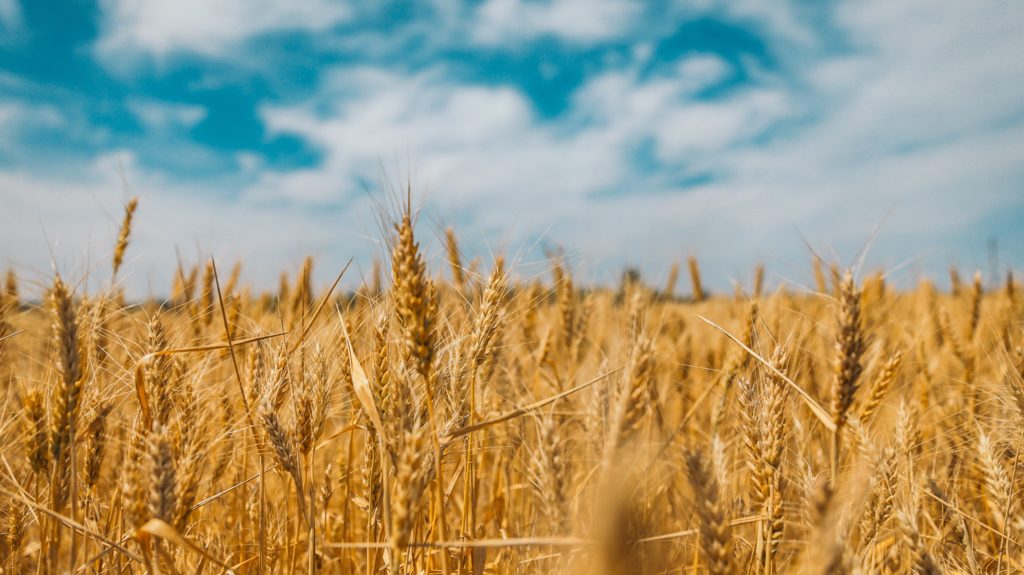Next Friday, JCRC will be closed as Jewish communities around the world celebrate Shavuot. We will retell and re-live the experience of Moses ascending Mount Sinai and receiving the Ten Commandments. The week leading up to Shavuot is the final week of the Omer, the intentional counting of the 49 individual days and the full seven weeks from the Passover Seder until this holy day.
This year, for nearly all of us, these seven weeks (and then some) have been spent sheltering at home. It seems almost impossible that we will now mark our second major Jewish holiday season without congregating in person for Torah reading, or for the recitation of our Yizkor memorial service. Counting the Omer has been very much on my mind this week as I’ve been immersed in the public discourse about physical distancing, government health directives, and personal sacrifices. Governors and mayors are easing restrictions. Here in Massachusetts, we now have guidance on safety protocols for re-opening Houses of Worship. While that guidance that has been criticized by some, we at JCRC recognize the multiple pressures facing our Governor and appreciate his efforts to provide guidelines for our safety.
Across the nation, even as a wide majority of Americans continue to support the difficult sacrifices of physically distancing, there is tension and debate regarding the balancing of constitutional rights, personal freedom, and collective safety. This plays out in ways both large and small as when some people refuse to practice basic measures like mask wearing in public spaces.
These debates about freedom and collective responsibility evoke the connection between our holidays. Passover celebrates our individual freedom, our liberty from the tyranny of slavery in Egypt. Shavuot marks the establishment of a collective law. This weekend, we celebrate the establishment of a social contract between the Divine and the People, but also – and more importantly – among the people. And these holidays are connected because the gift of freedom is incomplete without the gift of law.
Rabbi Lord Jonathan Sacks, former Chief Rabbi of England, explains it thus:
“If freedom means only that I can do what I want, then my freedom will inevitably conflict with yours. If I am free to steal, you are not free to own…That is why Judaism sees the exodus as the beginning, not the end, of the journey to freedom. The culmination came in the giving of the Law. The biblical vision is of a society in which no one will be at the mercy of others. Its rules and institutions aim at creating a social order of independent human beings linked by bonds of kinship and compassion…The freedom to do what we want creates individuals. It does not create a free society.”
In the connection between Passover and Shavuot, we see values and ideas upheld and articulated, not in opposition to each other, but rather in conversation. These values – freedom and social order –each can be of greater import to us at any given moment. But neither is fully realized without its relationship to the other.
It is within this notion that we have an opportunity to offer a deeply Jewish approach to engaging the complexity of this moment. We must insist on having a society that prizes freedoms – enshrined in our constitution – including of assembly and worship. At the same time, with those freedoms come the responsibility of building a collective social well-being, both through laws and through our individual responsibility.
We can choose, as every Jewish denomination and nearly every synagogue in America has, to see state and local directives as a baseline, not a ceiling, for the precautions we take in gathering and protecting all of us, especially the most vulnerable among us.
We can choose to embrace masks, not just because of local civil directives, but as a way of saying to our neighbors that we are ultimately interconnected, responsible to each other and for each other’s health and well-being.
We can choose to take these steps and others, not as a way of winning a fight between left and right but rather as an articulation that we are, still, one society. We can affirm that citizenship in that society means valuing and living within the dynamic tension between personal freedom and collective social order and responsibility.
The journey in the wilderness formed the Jewish people. So too will we be transformed as a nation, as we journey from what we were before this pandemic to what we will be when it is over. Our Jewish tradition, and the days and weeks we’ve been counting off while sheltering at home, have something to teach us about the kind of society we are striving to shape.
Shabbat Shalom,
Jeremy


